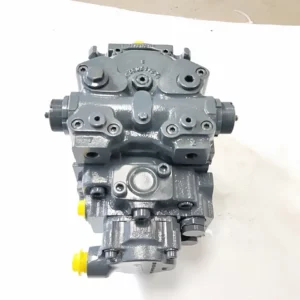Hydraulic drives and electrical drives are 2 typical kinds of power transmission systems used in numerous industrial and mobile applications. Each type has its very own advantages and negative aspects.
Right here are some advantages of hydraulic drives compared to electric drives:
High Power Thickness:
Hydraulic drives can provide high power outcome in a fairly portable and light-weight package. This high power density makes hydraulic systems fit for applications where space and weight are restricted, such as mobile tools and heavy machinery.
High Torque at Reduced Speeds:
Hydraulic systems can produce high torque at low speeds, making them suitable for applications calling for high beginning torque or exact control of low-speed motions, such as lifting, pushing, or drawing hefty loads.
Overload Protection:
Hydraulic systems give integral overload security as a result of their pressure-limiting shutoffs and alleviation systems. When the load surpasses the system’s capacity, the stress relief valve releases excess stress, avoiding damages to the tools and ensuring driver safety and security.
High Shock and Resonance Resistance:
Hydraulic systems are inherently durable and can hold up against high levels of shock and vibration without jeopardizing performance or reliability. This makes hydraulic drives appropriate for rugged atmospheres and durable applications, such as building and construction, mining, and agriculture.
Flexible Power Transmission:
Hydraulic systems can send power over long distances and around barriers through adaptable pipes or pipes. This versatility permits versatile maker styles and assists in the combination of hydraulic elements into complicated systems.
Variable Rate Control:
Hydraulic drives provide precise and responsive speed control over a large range of running speeds. By adjusting the flow price of hydraulic fluid to the actuator, operators can accomplish smooth acceleration, deceleration, and speed law, improving efficiency and performance.
Alleviate of Installment and Maintenance:
Hydraulic systems are fairly basic to set up and maintain, needing fewer components and less intricate wiring contrasted to electric drives. Routine upkeep jobs, such as fluid replenishment and filter substitute, can be done promptly and quickly, reducing downtime and maintenance prices.
Versatility to Rough Settings:
Hydraulic systems can operate properly in harsh environmental conditions, consisting of extreme temperature levels, wetness, and contamination. Secured hydraulic elements and corrosion-resistant materials guarantee trusted performance and long life in demanding applications.
On the whole, hydraulic drives use numerous advantages over electric drives, consisting of high power density, high torque at reduced speeds, overload security, shock and resonance resistance, adaptable power transmission, variable rate control, simplicity of installment and upkeep, and versatility to harsh environments. These features make hydraulic systems well-suited for a variety of commercial and mobile applications where performance, reliability, and efficiency are vital.

